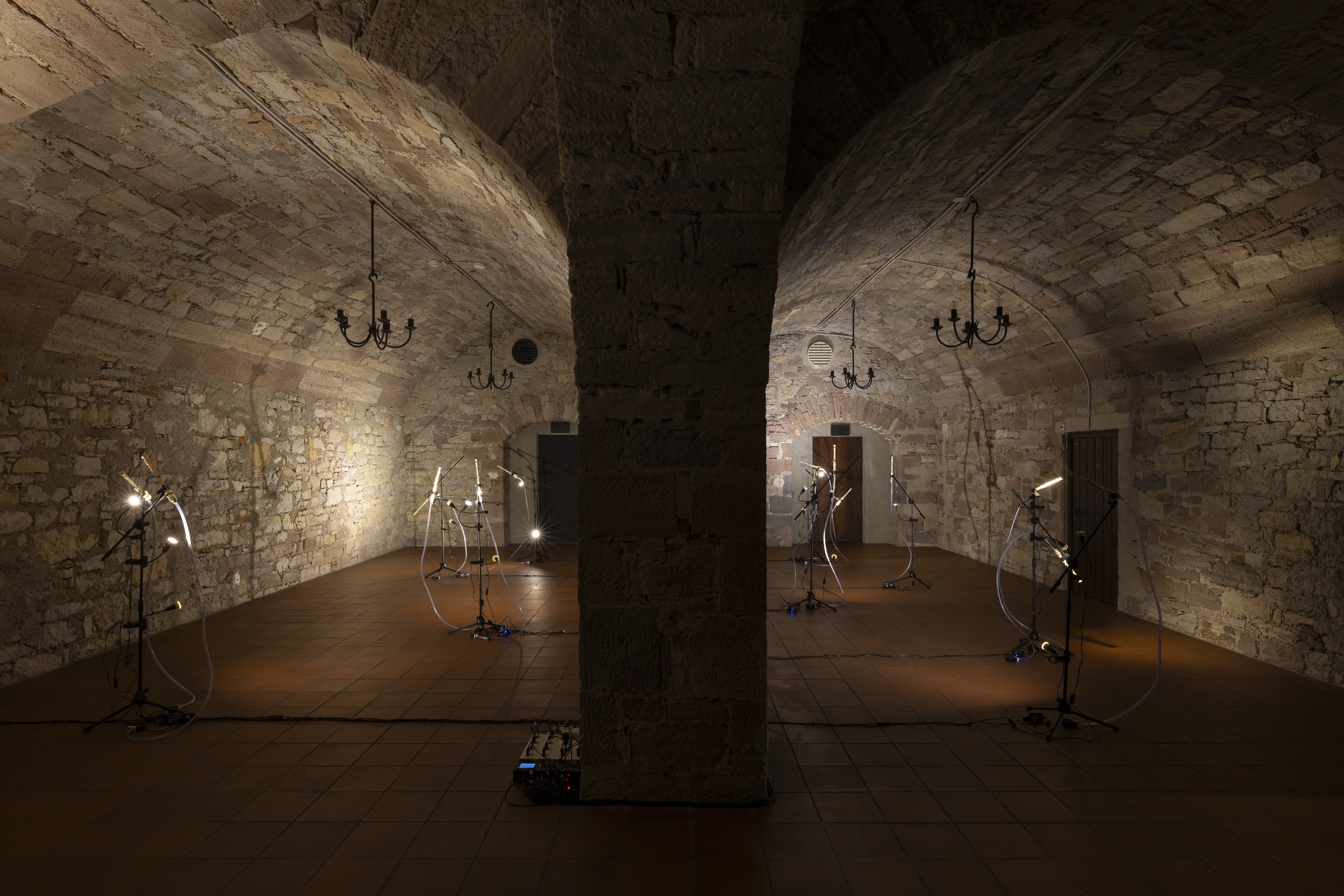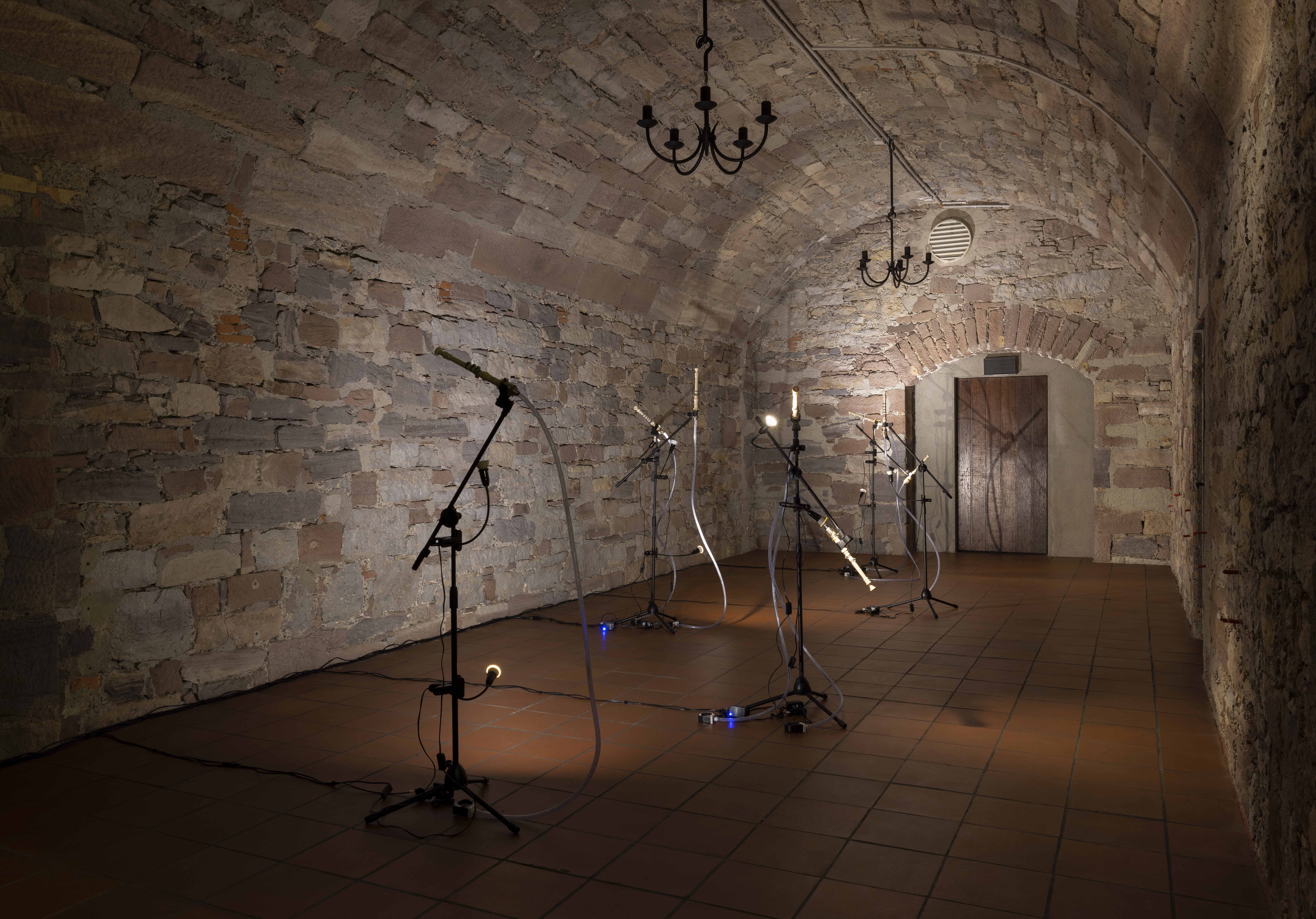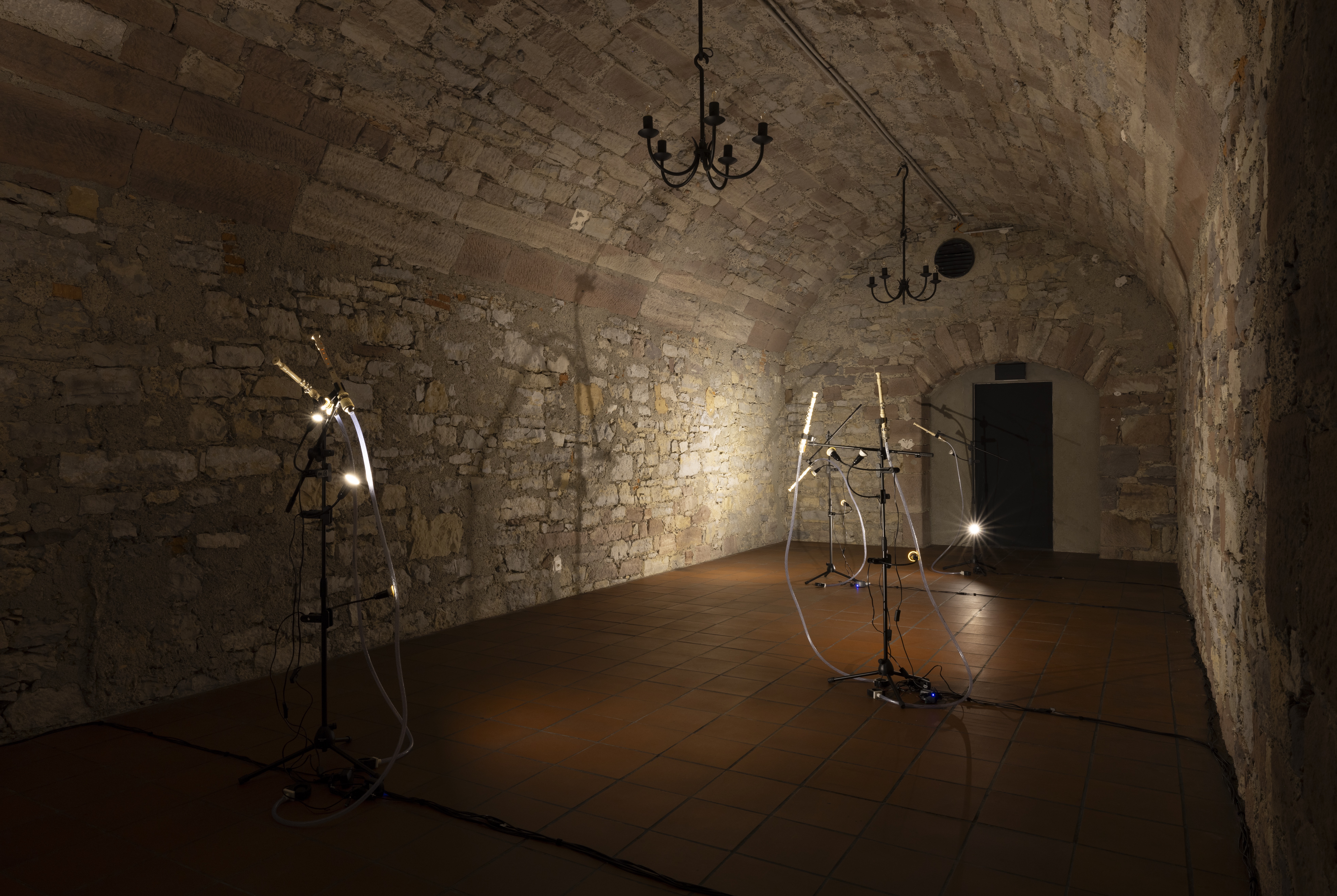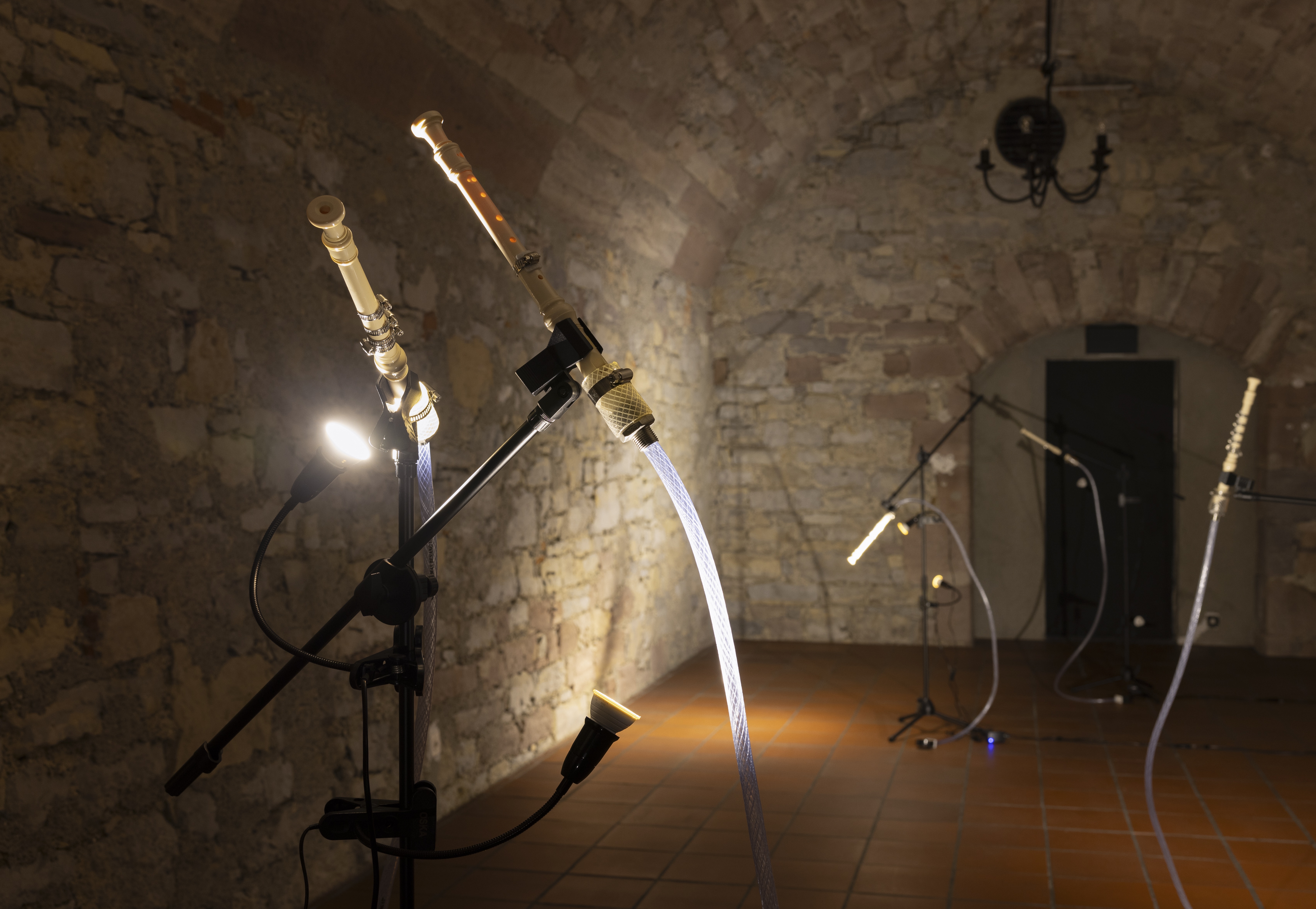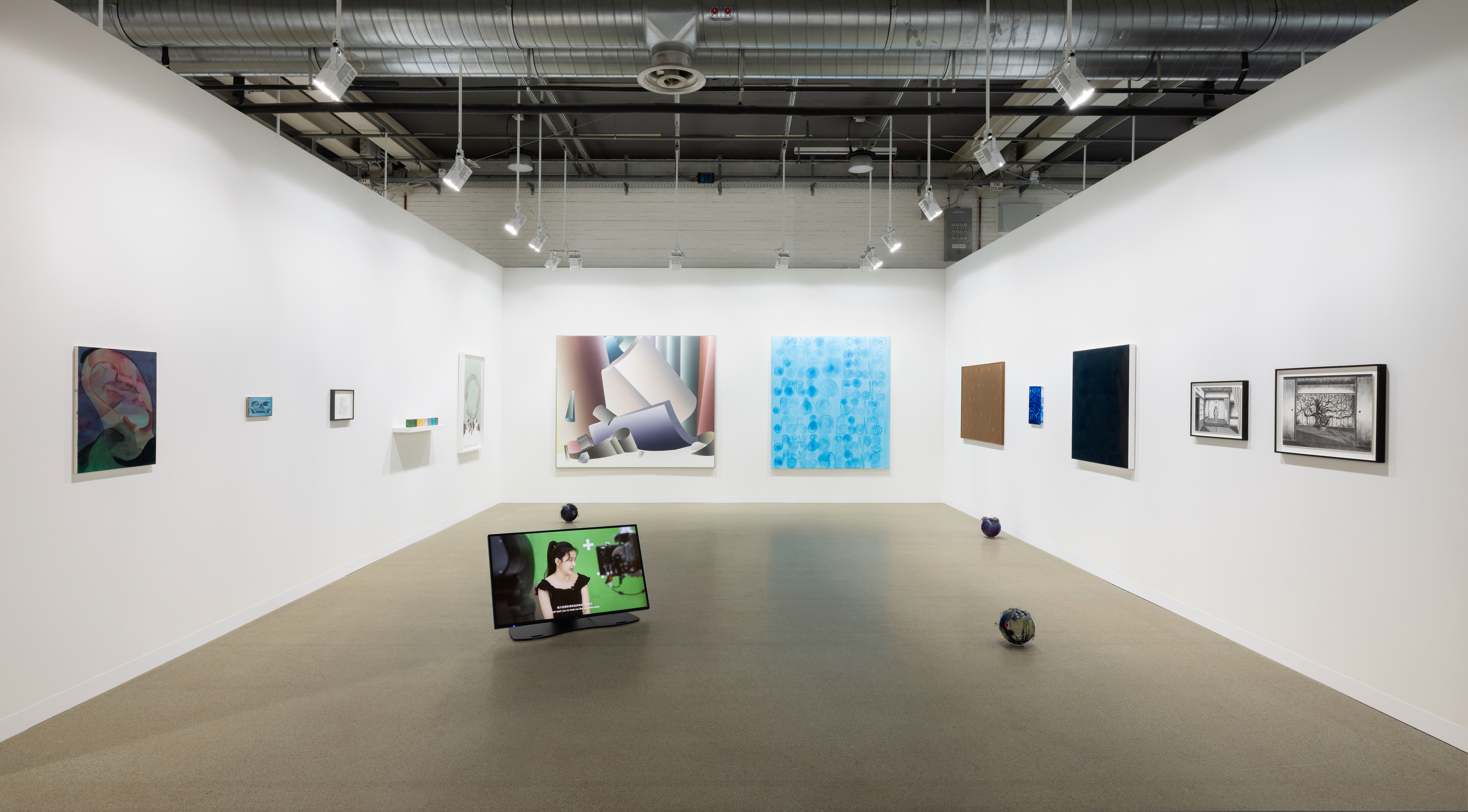Kiang Malingue presents at Art Basel in Basel a group presentation of paintings, drawings, sculptures, videos and installations by Cho Yong-Ik, Chou Yu-Cheng, Tiffany Chung, Brook Hsu, Kyung-Me, Lai Chih-Sheng, Liu Yin, Tao Hui, Tromarama, Wong Ping, Carrie Yamaoka, Hiroka Yamashita, Yuan Yuan and Zheng Bo. Highlights include recent paintings by Chou Yu-Cheng and Brook Hsu, as well as new works by Tiffany Chung, Kyung-Me and Hiroka Yamashita.
Along with Origami #60 (2023) from the acclaimed “Origami” series of paintings, Chou Yu-Cheng is also presenting Imaginary Body #1 (2024), the first large-scale painting from a new series. Just as gentle and vibrant in colour, the painting also makes use of Chou’s unique gradation technique, dealing with forms and scenes that are particularly organic. Tiffany Chung creates paintings that inspect the terra rouge plateau of Bình Long–Phc Long in three distinct periods; she contends that revisiting Neolithic circular earthworks might lead us to imagine a different possibility—a hypothetical trajectory in which earthwork groups had never been incorporated into a new socioeconomic and political polity, but instead chosen to remain in what the artist calls “rebellious solitude.”
Brook Hsu’s latest ink-on-canvas piece from the large text painting series that commenced in 2023, Pasolini Seven Times (2024), directly expresses the artist’s profound affection for the Italian director. By repeating in a special font Pasolini’s name seven times across the large canvas, this painting marks a significant deviation from the ongoing green painting series, speaking of both an obsession with Pasolini’s artistic and political legacies, and a subtle interest in turning texts into radically figurative compositions. Three new paintings by Hiroka Yamashita demonstrate the artist’s interest in the connections between humans and nature: Mitsumata (2024) revolves around a unique, organic paper-making technique using a plant called mitsumata; Celestial Navigation (2024) speaks of the role of constellations as sources of guidance and inspiration; Like the sea water (2024) depicts a double-body scene: the title in Japanese explicitly references amniotic fluid, commonly known as waters—the fluid that facilitates physical and spiritual exchanges between a mother and her baby.
Liu Yin’s Wisdom Time III (2024) continues to explore a new type of vanitas wherein the sign of vitality and death is sentient and charged with emotions. Comparable in composition, Peaches (2024) totally eschews narrative elements, dealing directly with returning the viewer’s gaze in defiance. Kyung-Me’s monochrome works on paper exalt in demonstrating the artist’s fascination with spatial order. The highly symmetrical compositions unfold in the artist’s distinctive style semi-enclosed spaces within one another, rendering an atmosphere that is at once silent and disquieting. Also on view is Tao Hui’s latest film, The Night of Peacemaking (2022), commissioned by Aranya Art Center for the artist’s survey exhibition in 2022. It constructs a TV production scene of a mediation show, exposing the backstage mechanism at work while questioning the veracity of the relationships between the producers, the participants, and the viewers.
In the Film section, Zheng Bo shows The Political Life of Plants (2021-2023), premiered at the Gropius Bau in Berlin in 2021. Set within the Grumsin forest, the film presents the forest as a queer assembly, where trees participate in a congress of their own “more-than-human” form.
In the Parcours section at Volkshaus Basel, Tromarama shows Bhinna (2024), a musical installation that responds to tweets posted online with the hashtag #nationality. The work decodes tweets into binary codes that correspond to the electrical features of the work, generating a procedural choir of sounds. At once playful and solemn, Bhinna ponders nationalism today, as well as going through childhood memories—as elementary school students, the members of Tromarama were required to play a national anthem in order to graduate.
Art Basel in Basel 2024 | Booth L21

Photo by Andrea Rossetti.

Photo by Andrea Rossetti.
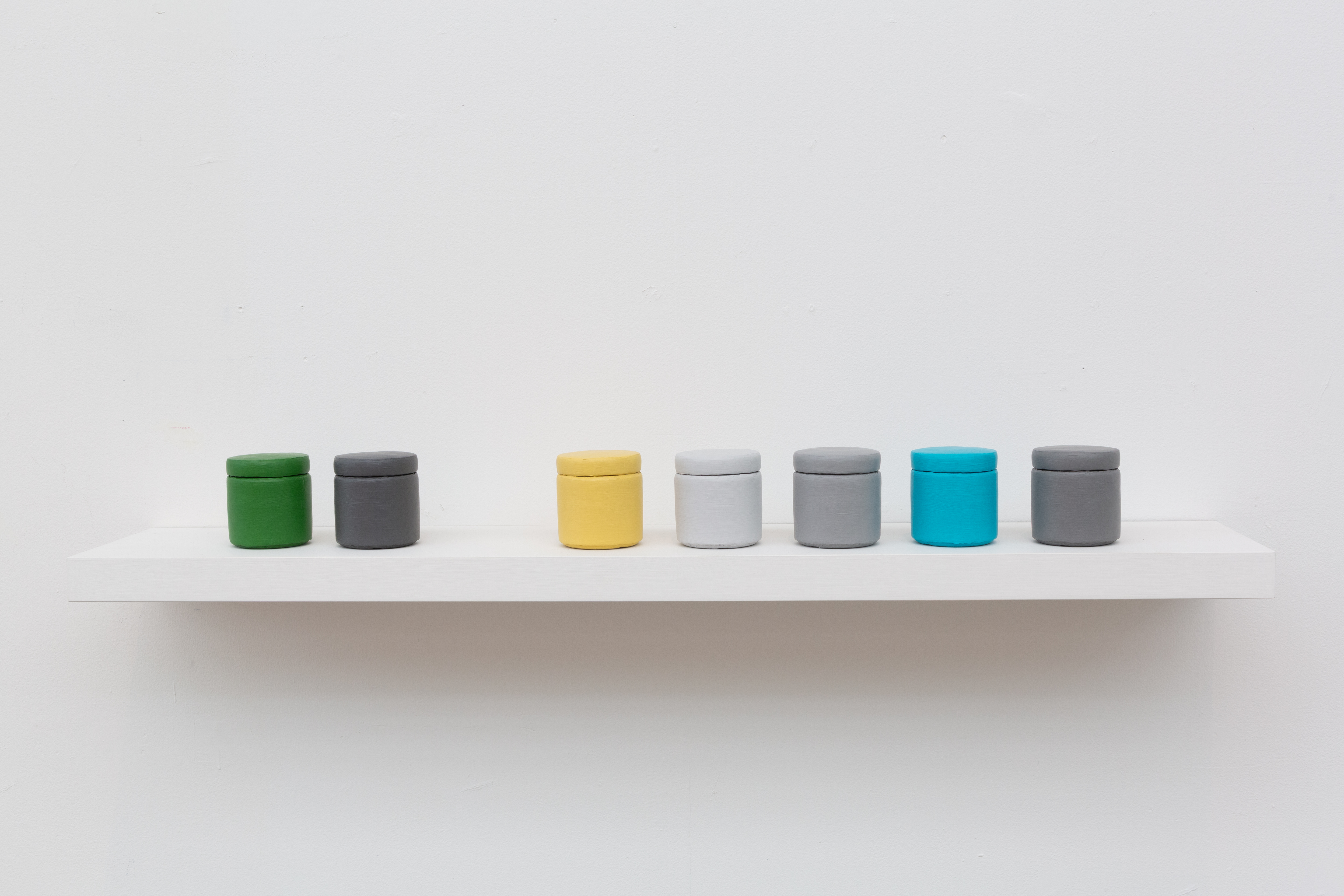
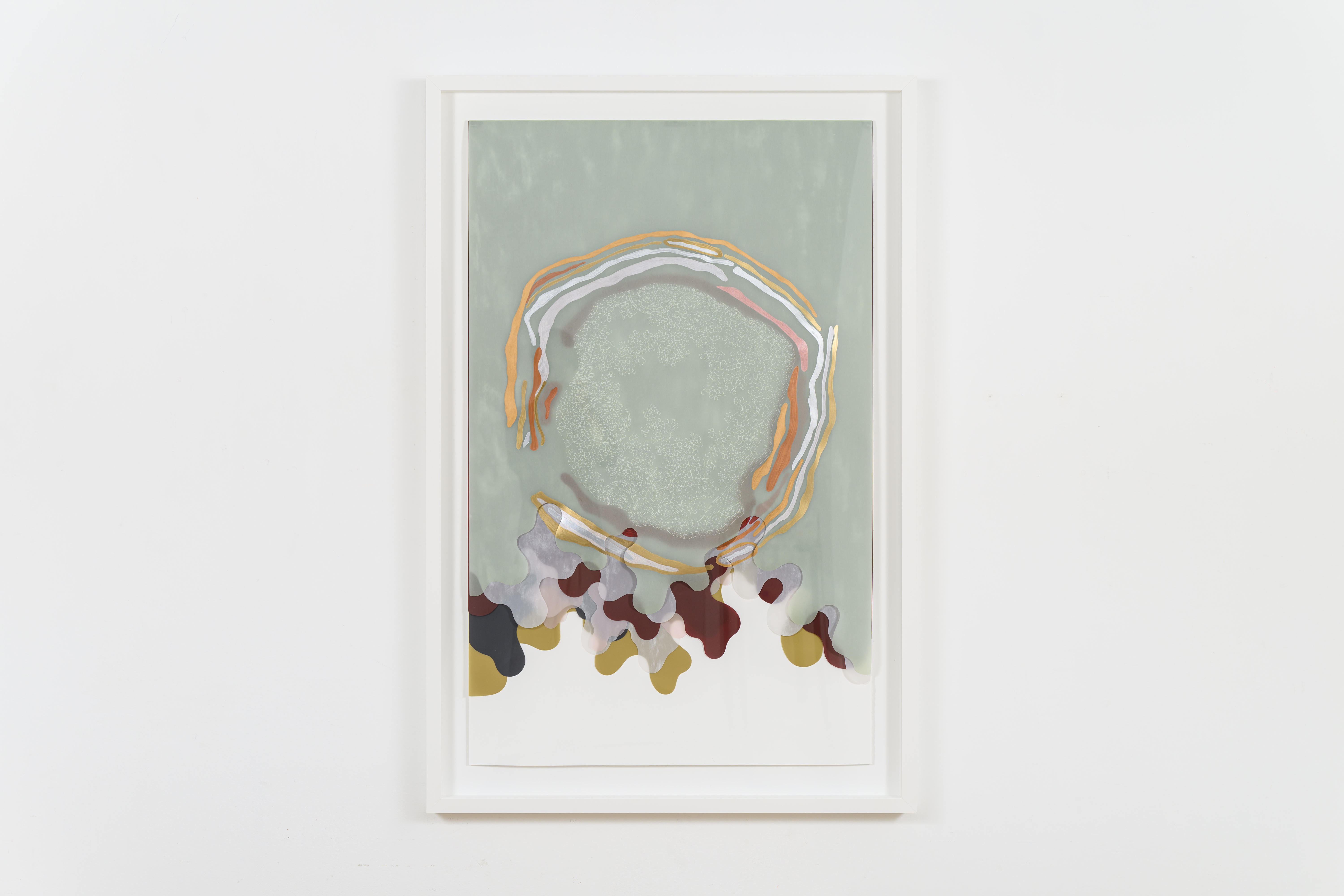
framed: 127 x 85 cm
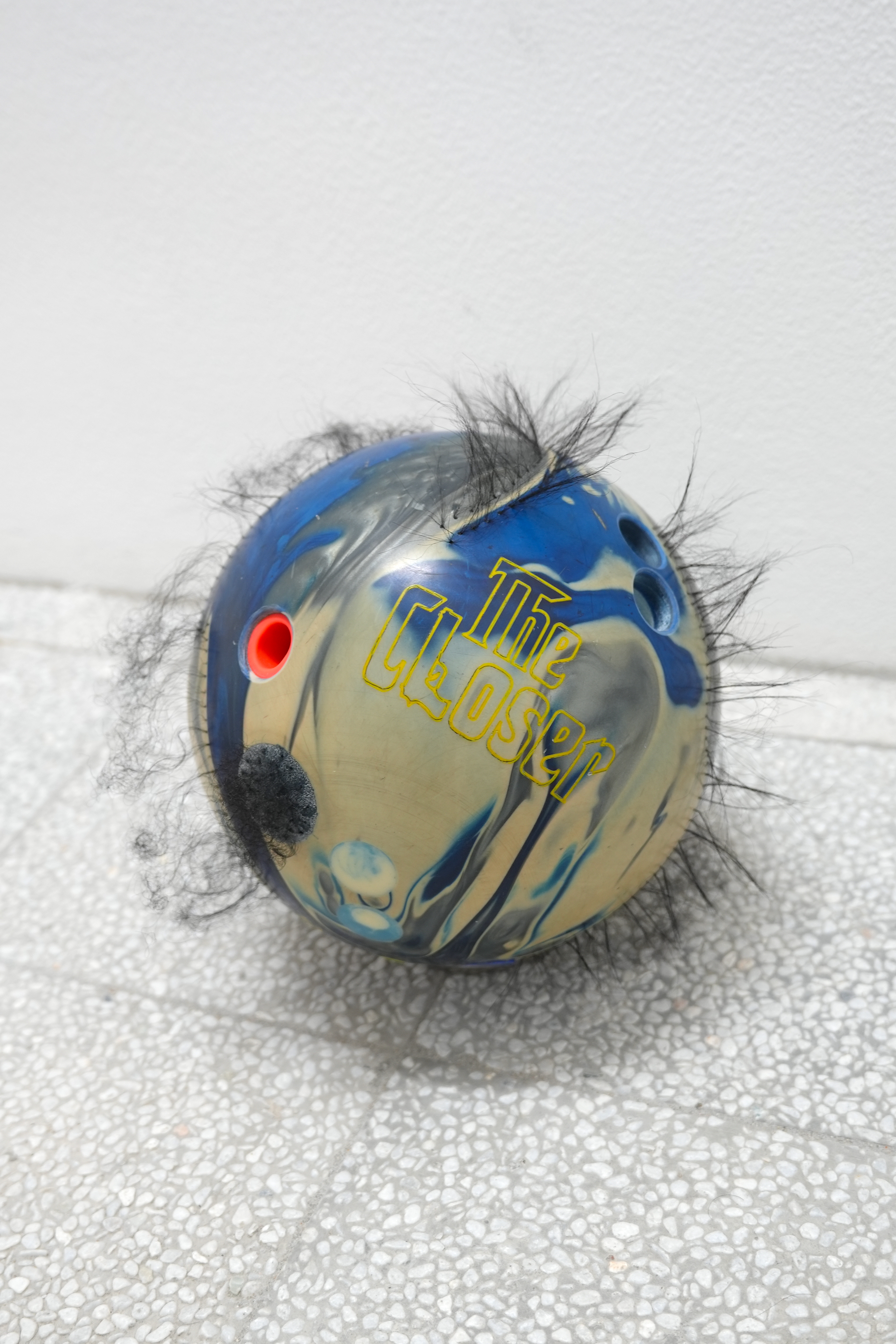

Photo by Andrea Rossetti.

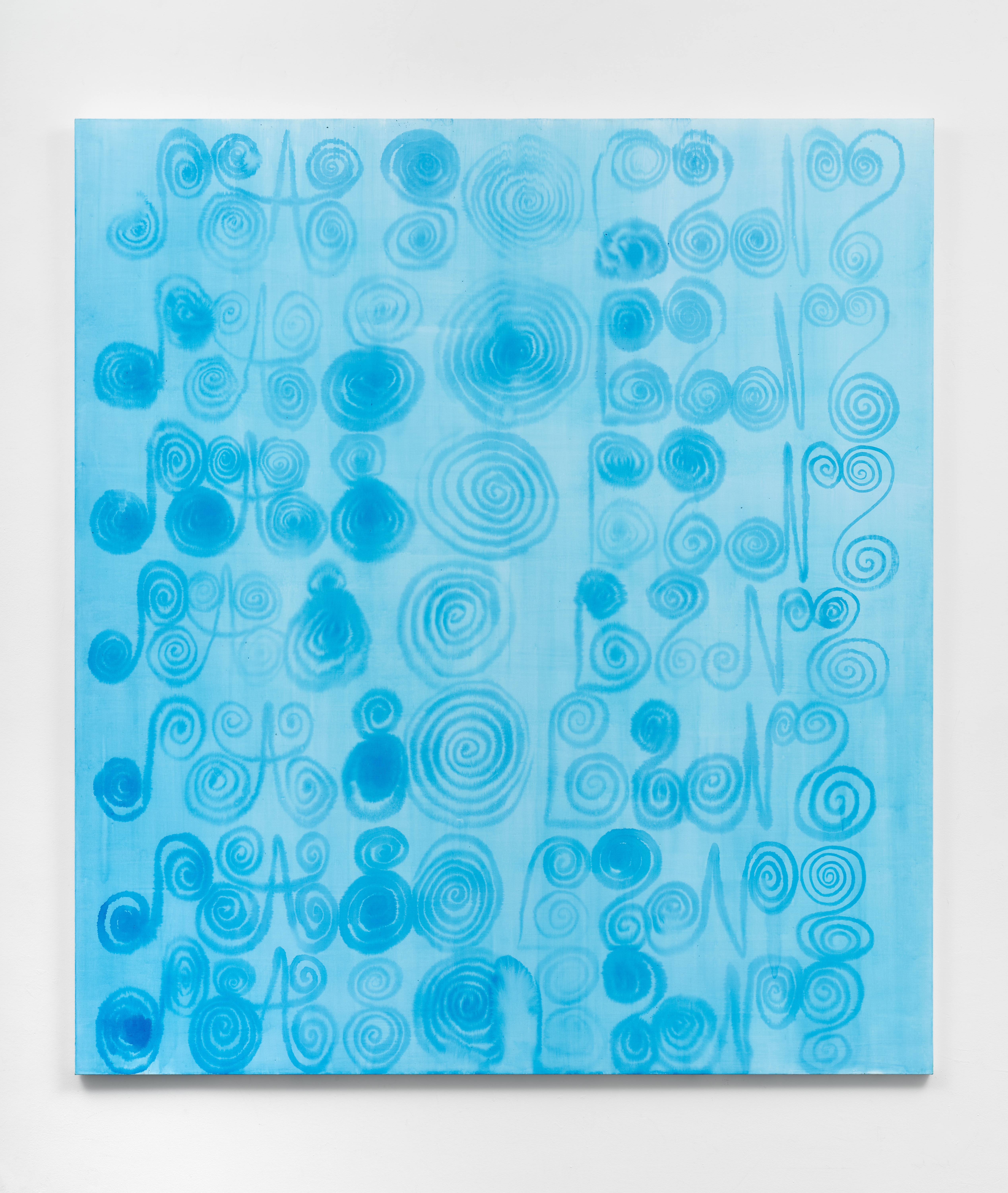

Photo by Andrea Rossetti.
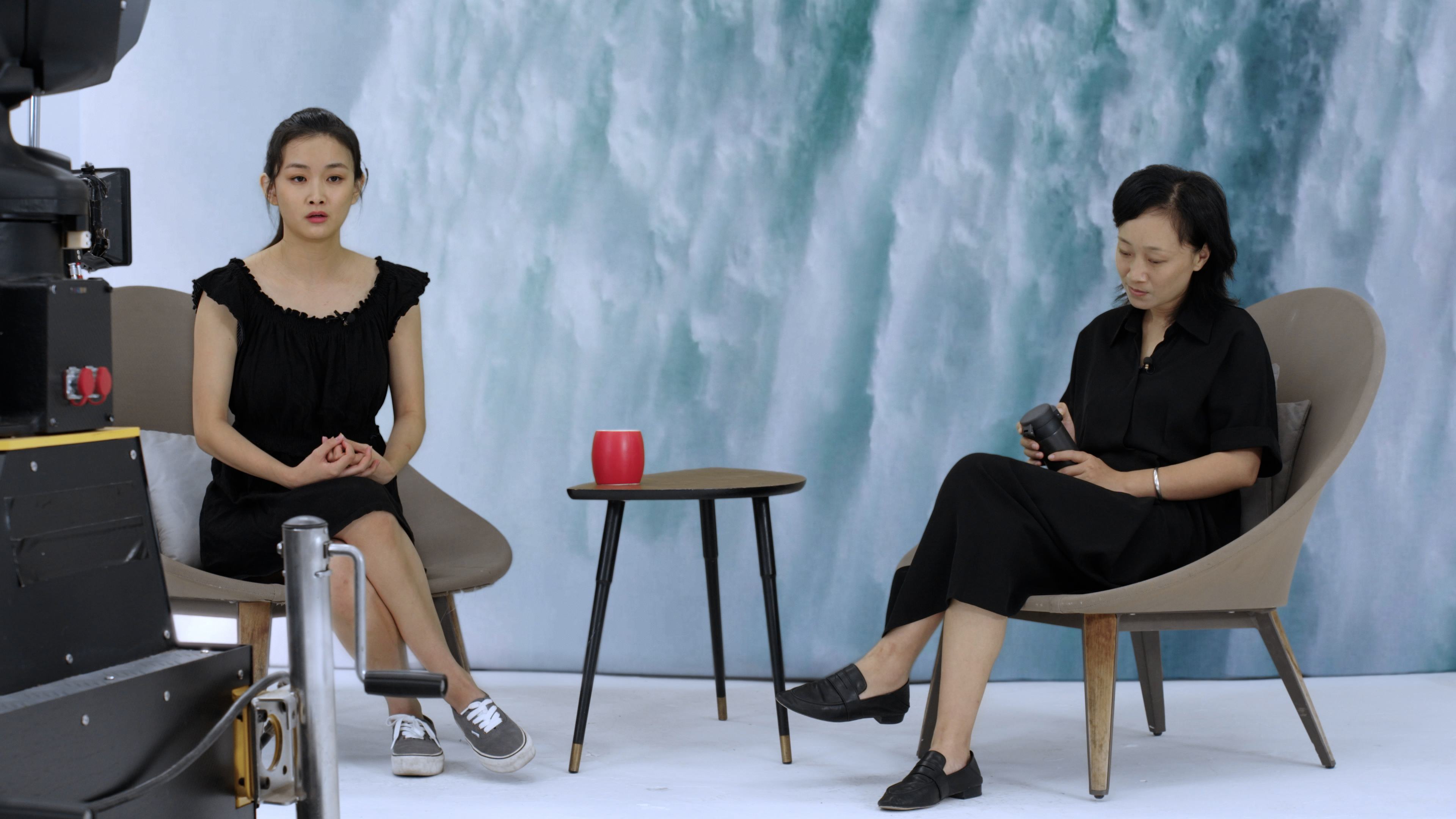
Duration: 22 min 18 sec

Photo by Andrea Rossetti.
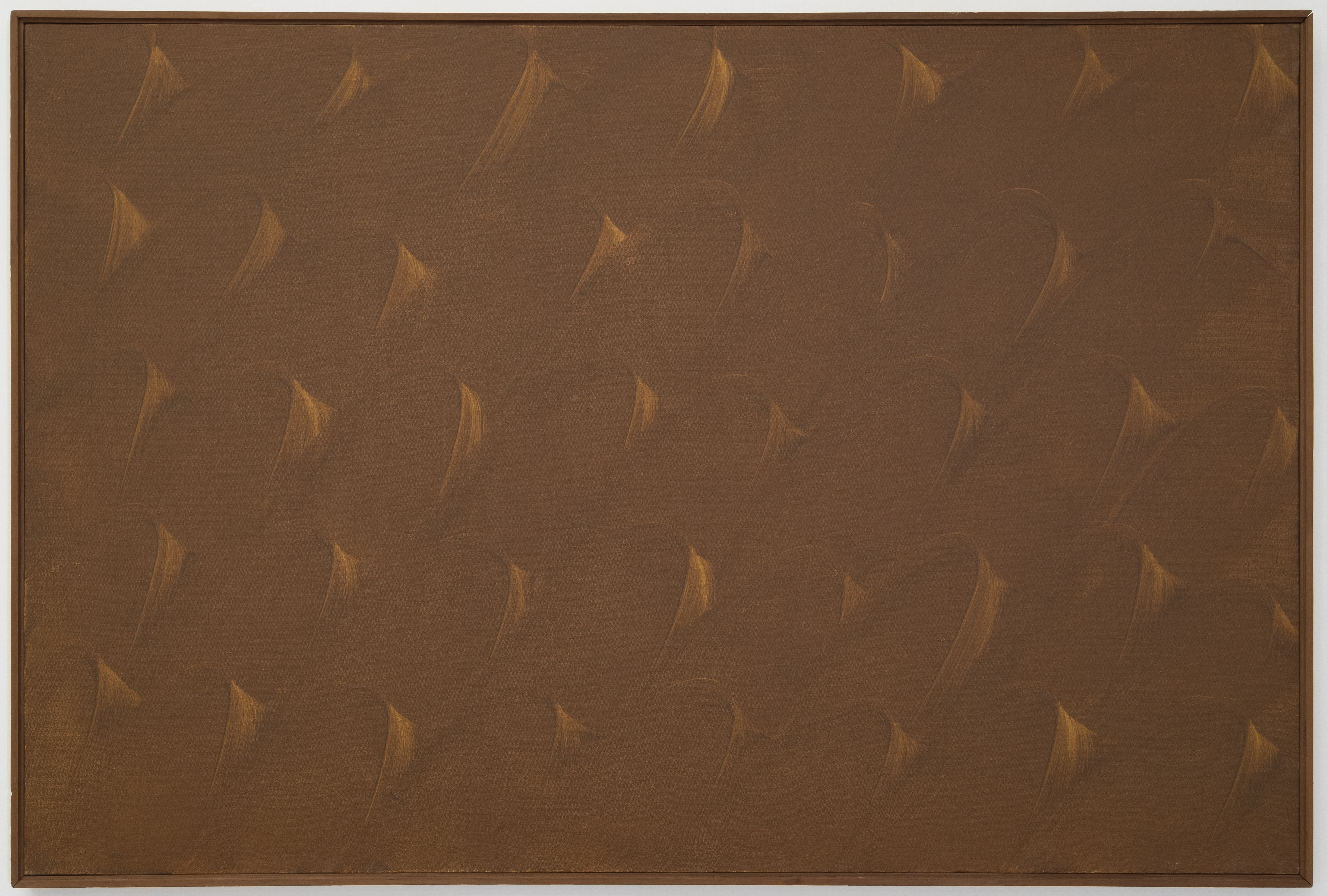
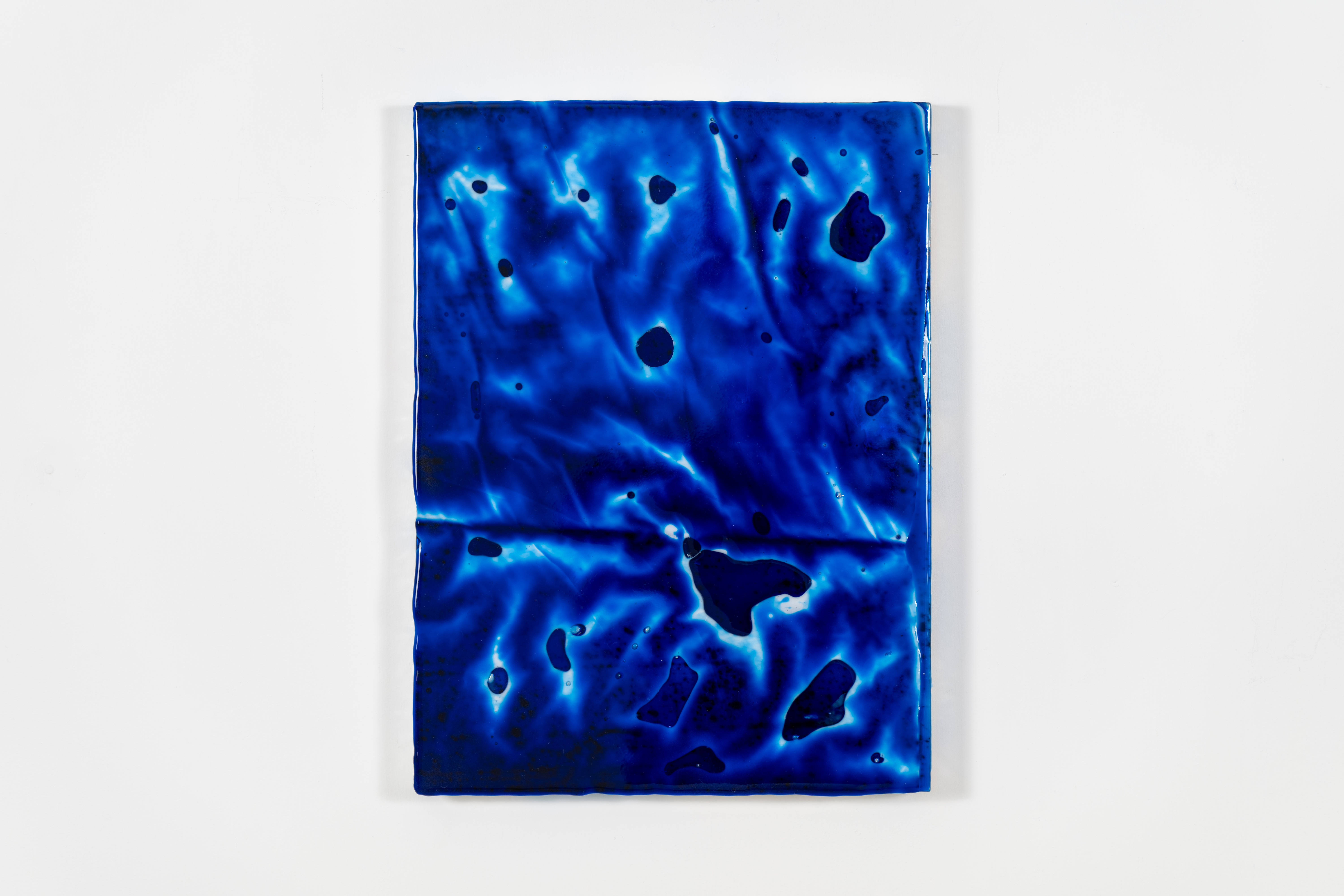
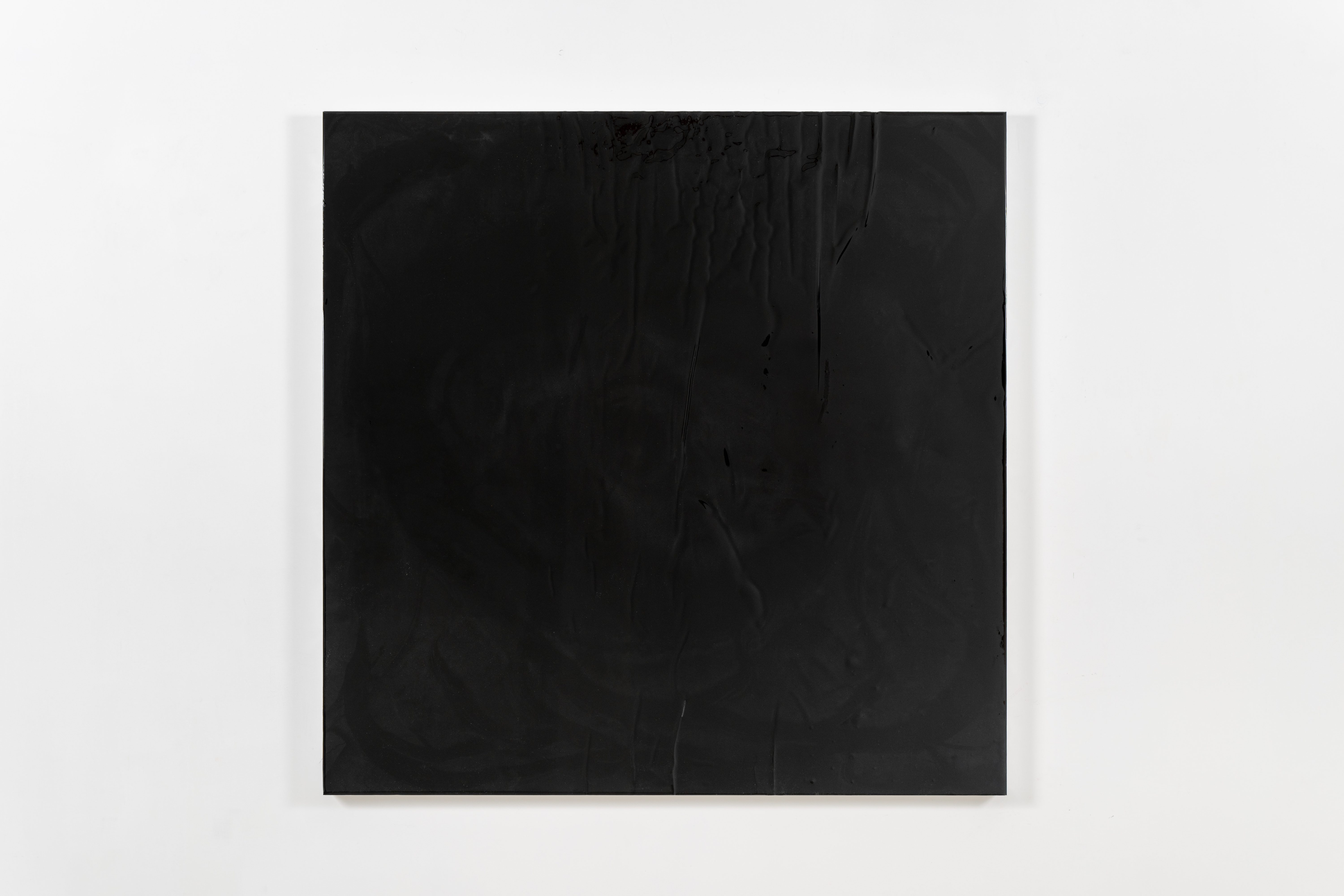
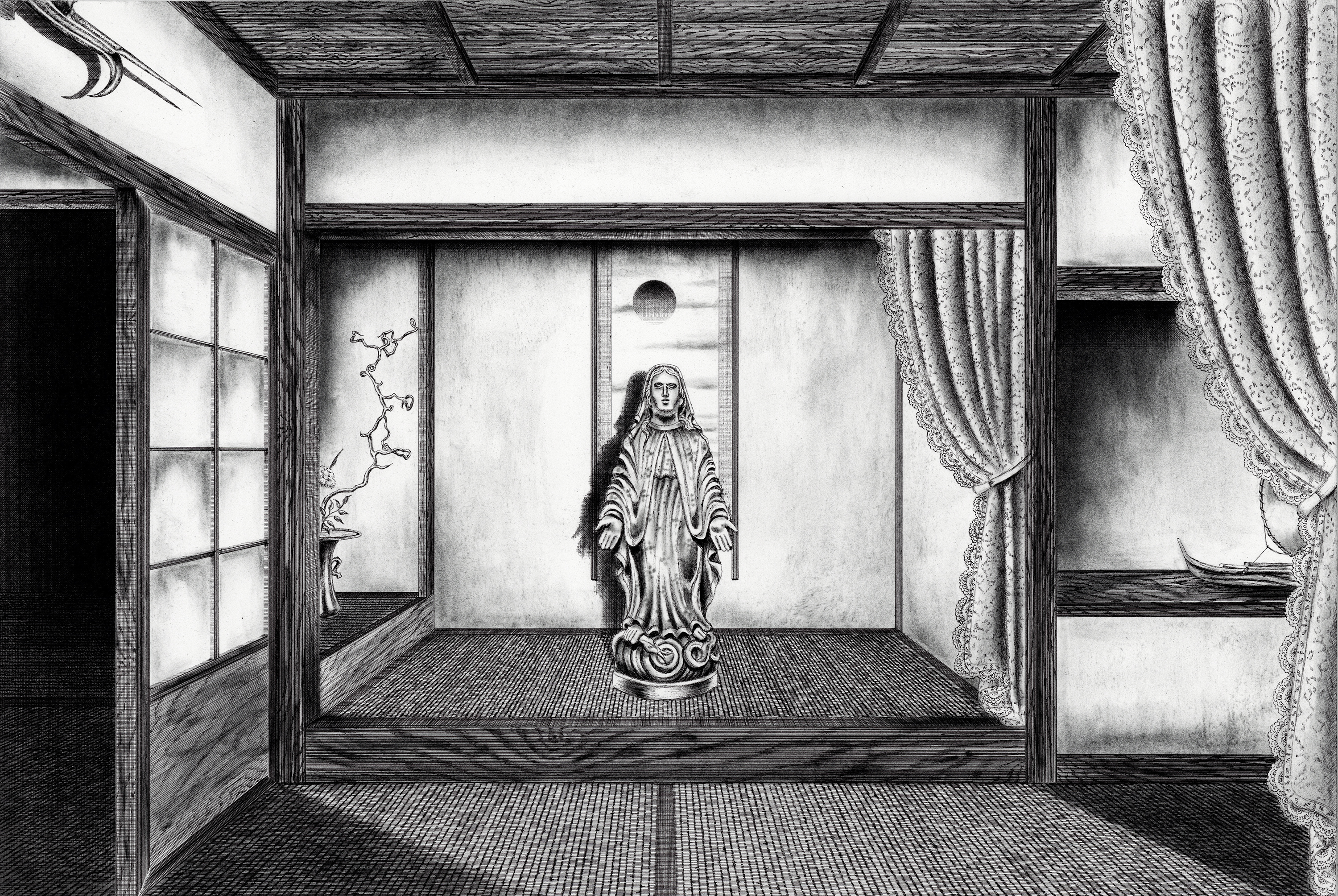
framed: 38.5 x 54 cm
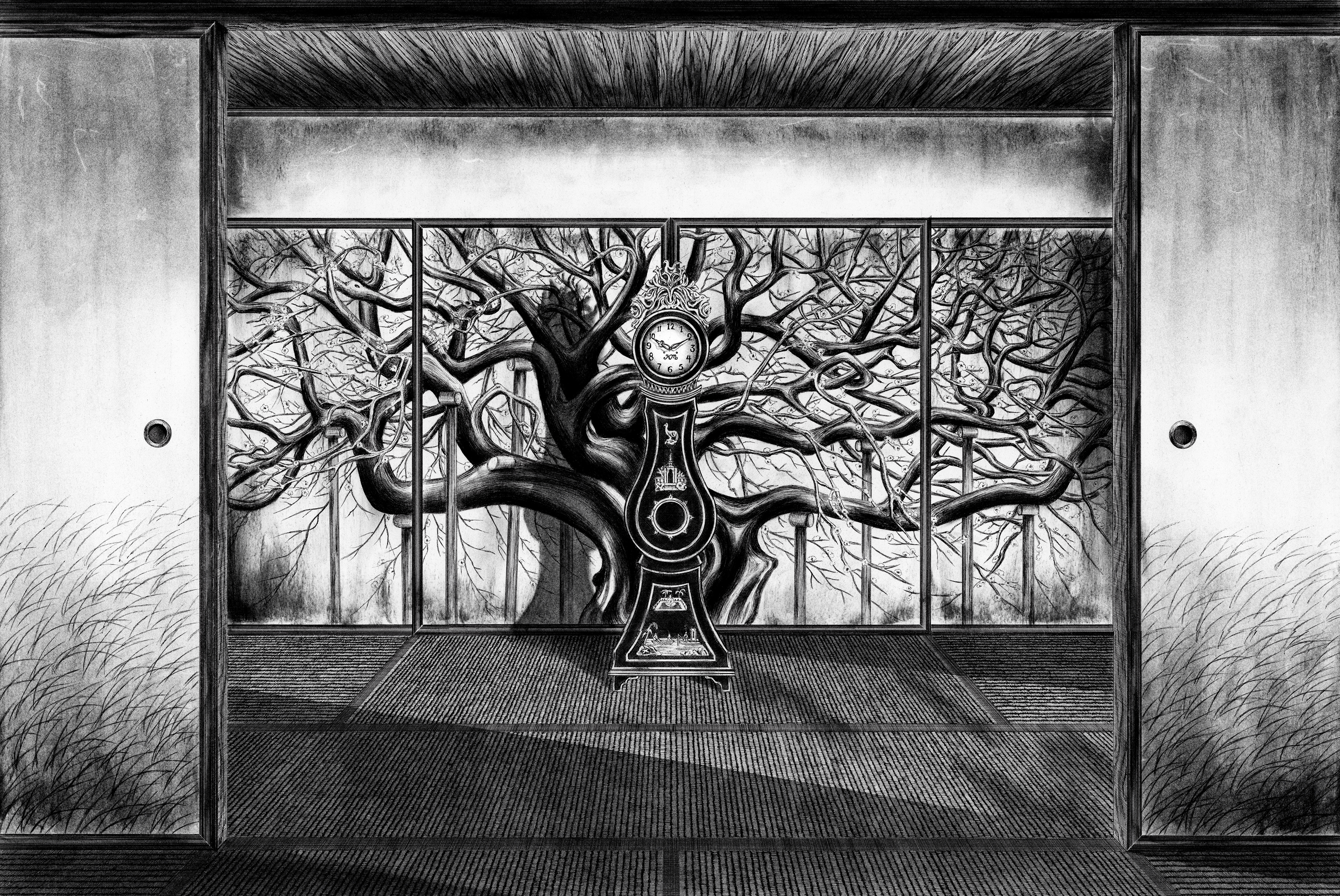
Framed: 50.3 x 70.5 cm
